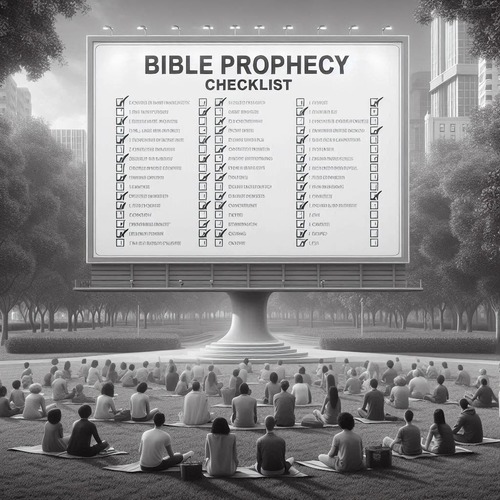Megiddo Or Jerusalem: Where Did King Josiah Die?
Recent archaeological discoveries at Tel Megiddo continue to reveal evidence of Egyptian military presence during the late 7th century BC, precisely when King Josiah met his tragic end. Yet for Bible readers, a puzzling question emerges from the historical accounts: where exactly did this righteous king of Judah die? The answer touches one of the most fundamental questions about Scripture’s reliability and accuracy.
At first glance, the Bible accounts appear contradictory. 2 Kings 23:29-30 seems to indicate Josiah died at Megiddo, while 2 Chronicles 35:20-24 suggests he died in Jerusalem. Critics have long pointed to this apparent discrepancy as evidence against Bible inerrancy. However, the Reformed tradition offers a compelling harmonisation that not only resolves this apparent contradiction but also demonstrates the remarkable precision of biblical narrative.
THE TEXTS IN CONTEXT
Two parallel accounts record Josiah’s final battle, each emphasising different aspects of the tragic event that ended one of Judah’s greatest reformer-kings.
2 Kings 23:29-30: The Battle Account: This passage states “Pharaoh Necho killed him at Megiddo when he saw him.” The Hebrew construction emphasizes the decisive encounter where Josiah’s fate was sealed. The account then mentions that “his servants carried him dead from Megiddo and brought him to Jerusalem,” focusing on the transportation of his body for burial.
2 Chronicles 35:20-24: The Detailed Narrative: Chronicles provides a more comprehensive account, describing how “the archers shot King Josiah” and how he told his servants, “Take me away, for I am badly wounded.” The text continues: “So his servants took him out of the chariot and brought him to Jerusalem, and he died and was buried in the tombs of his fathers.”
The Surface Contradiction: A casual reading suggests Kings places Josiah’s death at Megiddo while Chronicles indicates he died in Jerusalem. This apparent discrepancy has troubled readers for centuries and provided ammunition for those questioning biblical reliability.
THE REFORMED HARMONISATION
Reformed theology’s approach to this question demonstrates how careful exegesis reveals the beautiful harmony of Scripture—rather than contradiction. The key lies in understanding the distinction between receiving a fatal wound and the actual moment of death.
The biblical Hebrew supports a nuanced reading where 2 Kings focuses on the decisive, fatal encounter while Chronicles provides the complete chronological sequence. When 2 Kings states Pharaoh Necho “killed” Josiah at Megiddo, the Hebrew allows for understanding this as the moment Josiah received his mortal wound. The phrase “carried him dead” in verse 30 may equally be translated as “carried his dying body,” indicating he was mortally wounded but not yet deceased.
Chronicles fills in the crucial details that 2 Kings assumes. Josiah, struck by Egyptian archers, recognised the severity of his wounds and requested transport back to Jerusalem. He died during this journey home, fulfilling both accounts perfectly. The apparent contradiction dissolves when we recognise both narratives describe the same event from complementary perspectives.
This harmonisation follows essential Reformed hermeneutical principles. Scripture interprets Scripture (analogia scripturae), meaning we allow clearer passages to explain more compressed accounts. No genuine contradictions exist in God’s inspired Word, though different authors may emphasise distinct aspects of the same events. The Holy Spirit guided both authors to record exactly what served their theological purposes while maintaining complete historical accuracy.
SUPPORTING EVIDENCE AND SCHOLARLY CONSENSUS
Archaeological and historical evidence strongly supports this harmonised reading, while Reformed scholarship has long recognised this solution.
- Archaeological Confirmation: Recent excavations at Megiddo have uncovered Egyptian military installations and artefacts dating to Necho’s campaigns, confirming the biblical timeline and location. No archaeological evidence contradicts the biblical account of Josiah’s encounter with Egyptian forces at this strategic location.
- Ancient Near-Eastern Military Practices: Historical records from Egypt and Mesopotamia document numerous instances of wounded military leaders being transported home to die. The practice of moving mortally wounded royalty back to their capital for proper burial was standard protocol, making the biblical account entirely plausible within its historical context.
- Reformed Scholarly Agreement: From classical commentators like Matthew Henry to modern Reformed theologians, there is broad consensus supporting this harmonisation. The Westminster Study Bible notes affirm this interpretation, and respected Reformed scholars consistently demonstrate how careful exegesis resolves apparent difficulties.
ADDRESSING COMMON OBJECTIONS
Critics often raise two primary objections to such a harmonised reading, both of which may be answered satisfactorily.
“This is merely explaining away contradictions”: This objection misunderstands the nature of careful Bible interpretation. Rather than explaining away difficulties, proper exegesis seeks to understand what the text actually says in its original context. The harmonization emerges from the Hebrew text itself, not from external pressure to resolve contradictions.
“Why doesn’t the Bible state this explicitly?”: Ancient narratives operated under different literary conventions from those employed in modern writing. Biblical authors assumed their readers possessed cultural and historical knowledge that made certain details obvious. The compressed nature of Hebrew narrative often leaves implicit what modern readers expect to find explicit.
CONCLUSION: SO WHERE DID KING JOSIAH DIE?
The question of where King Josiah died illustrates how Reformed biblical interpretation upholds both the authority and accuracy of Scripture. Through careful attention to the Hebrew text, historical context, and sound hermeneutical principles, we discover God’s Word speaks with remarkable precision. Josiah received his fatal wound at Megiddo but died en route to Jerusalem—a solution that honours both biblical accounts while demonstrating the trustworthiness of Scripture in even the smallest details.
When we approach apparent Bible contradictions with faith and careful scholarship, we consistently find God’s Word proves reliable, accurate, and internally consistent. The death of King Josiah is yet another testament to the perfect harmony that underlies all of Scripture.
WHERE DID KING JOSIAH DIE? RELATED FAQs
What do the major Reformed commentaries specifically say about Josiah’s place of death? Matthew Henry’s Commentary emphasises Josiah was “mortally wounded at Megiddo but expired on his way to Jerusalem,” seeing no contradiction between the accounts. John Calvin’s commentaries note Scripture often uses “killed” to describe fatal wounding, not necessarily immediate death. The Geneva Study Bible similarly harmonises the accounts by distinguishing between the fatal encounter and the moment of expiration.
- Why did Josiah intercept Pharaoh Necho at Megiddo instead of defending Jerusalem directly? Megiddo controlled the strategic Via Maris trade route and the Jezreel Valley, making it the ideal location to block Egyptian advancement toward Assyria. Josiah likely calculated stopping Necho at this narrow pass would be more effective than allowing Egyptian forces to advance further into Judean territory. Reformed scholars note this demonstrates Josiah’s military wisdom, even though God had not sanctioned this particular intervention.
- What was Josiah’s spiritual condition when he died? Despite his disobedience in confronting Necho against God’s will (as Chronicles indicates), Reformed theologians maintain Josiah died as a believer whose salvation was secure. RC Sproul noted Josiah’s single act of presumption didn’t negate his genuine faith and previous faithfulness to God’s covenant. His burial “in the tombs of his fathers” suggests he retained his standing as a covenant king despite his final error.
How long would the journey from Megiddo to Jerusalem have taken in Josiah’s time? The distance between Megiddo and Jerusalem is approximately 70 miles through mountainous terrain. Given Josiah’s severe wounds and the need for careful transport, the journey would likely have taken 2-3 days with multiple rest stops. This timeframe easily accommodates the Chronicles account of Josiah dying “in Jerusalem” after being wounded at Megiddo, as he would have lingered for days before succumbing to his injuries.
- How do we explain God’s role in Josiah’s death? Reformed commentaries consistently interpret Josiah’s death as divine judgement for his disobedience in ignoring God’s word through Pharaoh Necho (2 Chronicles 35:21-22). John MacArthur notes even godly kings face consequences for presumptuous actions against God’s revealed will. However, they distinguish between temporal judgement for disobedience and eternal judgement, affirming Josiah remained in covenant relationship with God despite his fatal error.
- Are there other biblical examples of people dying during transport after being wounded elsewhere? Yes, several biblical parallels exist that support this pattern. King Ahaziah was wounded at Gu-Ramah but died at Megiddo during his flight (2 Kings 9:27). Abner was mortally wounded by Joab at Hebron but the text suggests a brief survival period (2 Samuel 3:27-30). These examples demonstrate that ancient Hebrew narrative commonly distinguished between fatal wounding and actual death, supporting the Josiah harmonisation.
What do Reformed scholars make of the different theological emphases in Kings versus Chronicles? Reformed hermeneutics recognises Kings focuses on political history and royal succession, while Chronicles emphasises spiritual lessons and God’s covenant faithfulness. Commentator Dale Ralph Davis notes Kings presents the “official record” of Josiah’s death, while Chronicles provides the “spiritual interpretation” of the same events. Both serve complementary purposes under divine inspiration, with Chronicles adding theological commentary that Kings assumes readers will understand from context.
WHERE DID KING JOSIAH DIE? OUR RELATED POSTS
Editor's Pick

Do Christians Need Holy Shrines? Why the Reformed Answer Is No
Walk into a medieval cathedral and you'll encounter ornate shrines, gilded reliquaries, and designated "holy places" where pilgrims gather to [...]

I Want To Believe, But Can’t: What Do I Do?
"I want to believe in God. I really do. But I just can't seem to make it happen. I've tried [...]

BC 1446 or 1250: When Did the Exodus Really Happen?
WHY REFORMED SCHOLARS SUPPORT THE EARLY DATE Many a critic makes the claim: “Archaeology has disproven the biblical account [...]

Does God Know the Future? All of It, Perfectly?
Think about this: our prayers tell on us. Every time we ask God for something, we’re confessing—often without realising it—what [...]

Can Christian Couples Choose Permanent Birth Control?
Consider Sarah, whose fourth pregnancy nearly killed her due to severe pre-eclampsia, leaving her hospitalised for months. Or David and [...]

Bone of My Bones: Why Eve Was Created From Adam’s Body
"This at last is bone of my bones and flesh of my flesh!" Adam's joyful exclamation upon first seeing Eve [...]

Is Calvinism Fatalism in Christian Disguise? Think Again
We hear the taunt every now and then: "Calvinism is just fatalism dressed up in Christian jargon." Critics argue Reformed [...]

Can Churches Conduct Same-Sex Weddings?
In an era of rapid cultural change, churches across America face mounting pressure to redefine their understanding of marriage. As [...]

Gender Reassignment: Can Christian Doctors Perform These Surgeries?
In the quiet of a clinic, a Christian physician faces a challenging ethical question. A patient sits across the desk, [...]

‘What Sorrow Awaits You Who Are Rich…’: What Does Jesus Mean?
The words hang in the air like a sword over comfortable Christianity: “What sorrow awaits you who are rich, for [...]
SUPPORT US:
Feel the Holy Spirit's gentle nudge to partner with us?
Donate Online:
Account Name: TRUTHS TO DIE FOR FOUNDATION
Account Number: 10243565459
Bank IFSC: IDFB0043391
Bank Name: IDFC FIRST BANK






